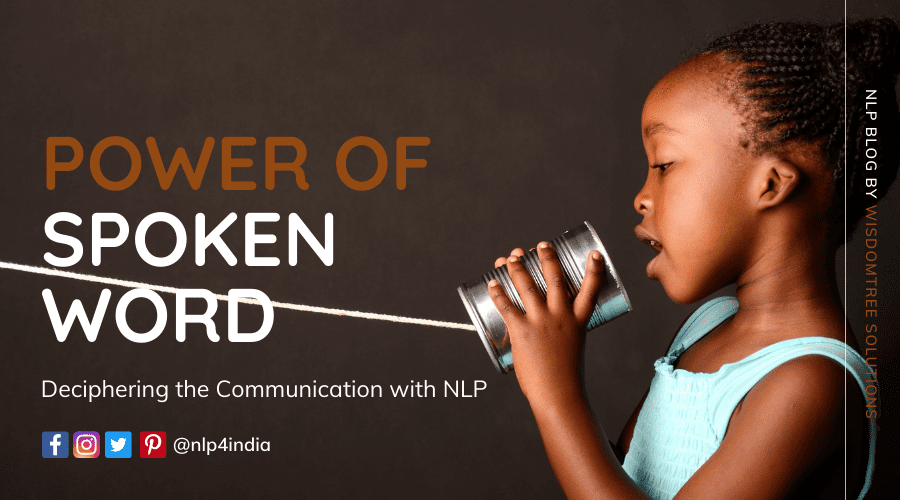I will start this article with an NLP presupposition “Meaning of Communication is the response you get”, and that is a very powerful statement.
How often do we see people telling us that they were misunderstood and something they said was interpreted wrongly by the listener. What does that means in any case? The damage is done and we as communicator (more aptly the speaker) have failed in sending our message across. Lot of my colleagues in training community often tell me about how insignificant the spoken word it (7% of total communication based on some research that is more than often quoted in wrong context).
I beg to differ, most spoken words or inspirational quotes for example are simple words; books that we read are words. Poetry is words again, we live in a world of words and that makes them so very important.
Most words trigger a response from our neurological system and it is a function of various factors that are different for different individuals, they could include and are certainly not limited to culture, upbringing, environment, physical and emotional state etc. Many of us would have felt the impact of these words in our day to day life. Let me illustrate some examples.
One such word is quite accepted by most people and hence I will start from the same. Usage of word “challenge” instead of word “problem”. As you say problem, notice the psychological response it invokes in your mind. And now change it with another word “Challenge”. For example, if you wanted to say “I have a problem” change it, and now say “I have a challenge”; it will create a changed response in your own mind-affecting physical and psychological states. You would certainly be more motivated to overcome the challenge, and your listener will be interested in the challenge you are about to discuss, while in case of a problem, he might stop listening to you considering you a part of it.
Another example that is mostly greeted with objections initially and accepted subsequently is the word “try”. As someone tells you that he would try to do something, what happens in your mind? Don’t you get a feeling that the person is not going to do it?
Let’s consider another scenario, you are invited by a friend and you told him “I will try to come”, now, you know how your friend is feeling (sometimes it is your boss who may give a quick resultant response).
I know you have a genuine challenge, you can only go if you are able to finish a task at hand and leave office on time etc. etc., let’s now rephrase our response and say “I currently have such and such responsibilities and once I complete the task in hand I will (or will not) be able to come (I know sometimes some of us choose to say yes though we want to say “no”, we will discuss that in another post, as of now let’s consider you genuinely are interested (you might have noticed I am avoiding “assume” that too is another story . As you now use the plan instead of “Try”, you now know, what is it that you need to do to be able to make it there and you have positively biased your mind.
Let’s consider a popular phrase that I have seen being used by many professionals “I don’t mind doing…”. This phrase is very interesting because invariably the unconscious fails to process the negative and listener would interpret the message as “I do mind…”. If in such a case you ask the speaker if there is an issue he has with the task, more than often he will give you a list.
And as speaker if you are keen on doing it; say I would love to do it. This leaves a positive impression in the mind of person giving you the job, and will have more confidence in you.
Few other words/ phrases you might like to consider are
- “I must” change to “I choose”
- “Sorry” change to “apologies” or another derivative
- “I can’t” change to “I can attempt”
There is something very interesting about the language patterns, the way we put together our sentences. In fact Milton model identifies more that 23 language pattern that can create the desired impression in listeners mind. We will discuss that in another blog.
You might have noticed that such rephrasing help your listener to carry a more positive impression of you and you yourself will feel more empowered and confident.
Leave a Reply Cancel reply
This site uses Akismet to reduce spam. Learn how your comment data is processed.


